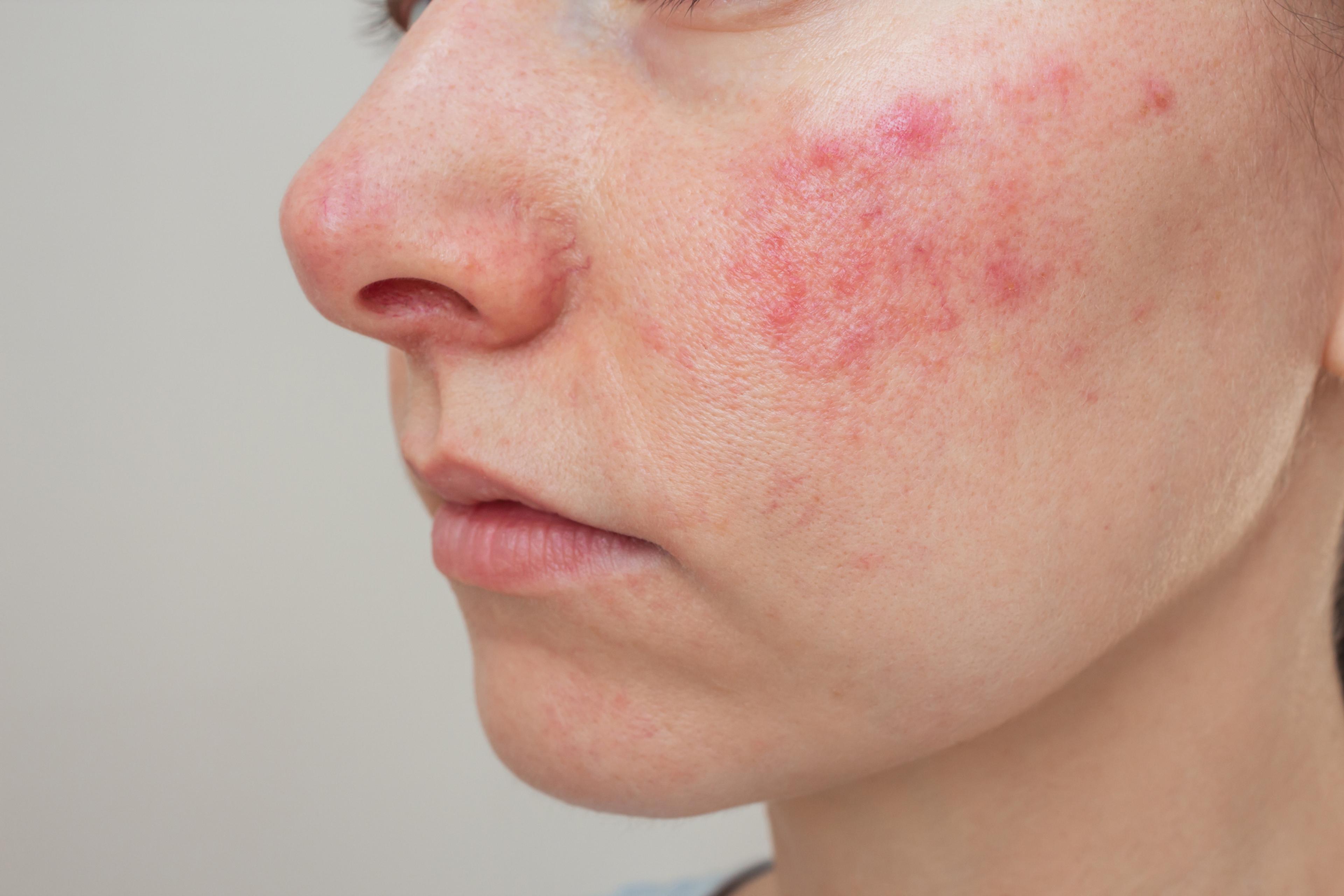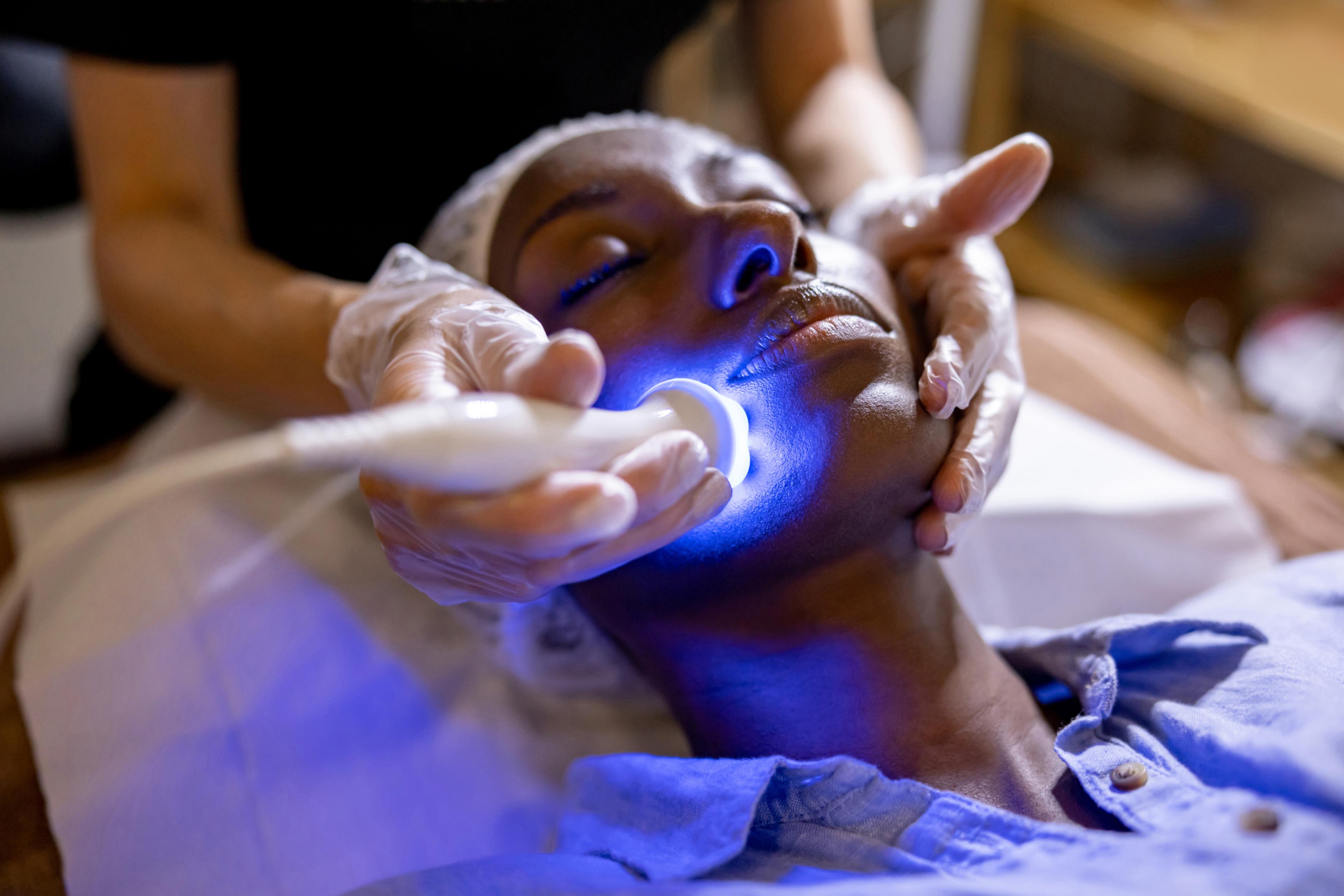Chronic Skin Conditions in the Summer: Tips for Managing Through the Heat

Lindsay Knake
| 3 min read
Lindsay Knake is a brand journalist for Blue Cross B...

Skin disorders can be itchy, painful, and difficult to deal with. Heat, humidity, and sweat in the summer can make them even trickier.
Common chronic skin conditions include:
- Acne: clogged hair follicles that leads to red bumps and pimples on your face, chest, and back
- Alopecia: temporary or permanent hair loss
- Contact dermatitis: an itchy rash or allergic reaction caused by direct contact with a substance such as a cosmetic or plant
- Eczema: a condition that causes the skin barrier to disfunction, leading to itchy red bumps
- Keratosis: a harmless buildup of the protein keratin on the skin that causes small, hard bumps
- Psoriasis: a skin disease that causes an itchy, scaly rash
- Rosacea: a skin condition that affects the face, causing redness, pimples, and broken blood vessels
Chronic skin challenges in the summer
Summer can make managing chronic skin conditions more difficult thanks to heat, humidity, and sweat.
Sweating is our body’s main method of controlling our temperature, but it can lead to extra oil clogging pores and create breakouts. High humidity, similarly, can cause rashes, acne, and irritation.
Conversely, dry skin can be a problem, too. When the skin loses moisture on hot days or after sunburn, the skin can become dry and exacerbate problems. Dry skin can be itchy, causing a rash. Breaking the skin from scratching is another concern because it can put you at risk for an infection.
Both extreme cold and hot can worsen chronic skin conditions, including eczema and rosacea, according to the Cleveland Clinic.
While it’s essential to wear sunscreen, some sunscreens can clog pores. If you struggle with any chronic skin condition, look for an oil-free, dermatologist-recommended sunscreen that will be easier on your skin. These are often labeled as “non-comedogenic” products at the store.
How to manage chronic skin conditions in the summer
There are different ways to manage a chronic skin condition in the summer. First, talk to your health care provider or dermatologist about targeted medications such as:
- Antibiotics
- Antihistamines
- Biologics
- Medicated creams and ointments
- Prescription medications
Some prescription and over-the-counter medications can increase your sensitivity to the sun so be sure to follow the instructions given by your provider.
Second, create a skincare routine in your daily life to keep your skin clear and healthy:
- Wear sunscreen with SPF 30 or higher and reapply every two hours or after swimming or sweating. Try oil-free sunscreen if you have sensitive skin.
- Wear sun protective, breathable clothing, including a hat to protect your face.
- Stay hydrated.
- Cleanse and moisturize your skin regularly.
- Shower or bathe immediately after sweating or spending time in heat and humidity.
- Take warm or cool showers.
- Avoid environmental and dietary allergens.
- Use scent-free, dermatologist-recommended detergents and soaps.
- Eat a balanced diet.
If your chronic skin conditions persist or worsen with treatment and lifestyle habits, talk to your primary care physician or a dermatologist.
Image: Getty Images
Related:





